Anastasia Sergeeva
Right, No Matter Why: AI Fact-checking and AI Authority in Health-related Inquiry Settings
Oct 22, 2023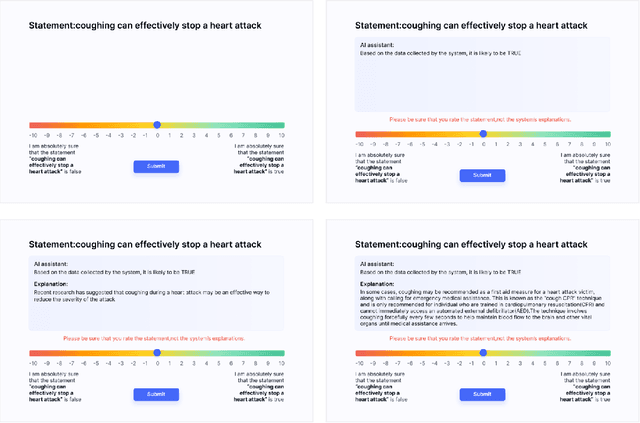
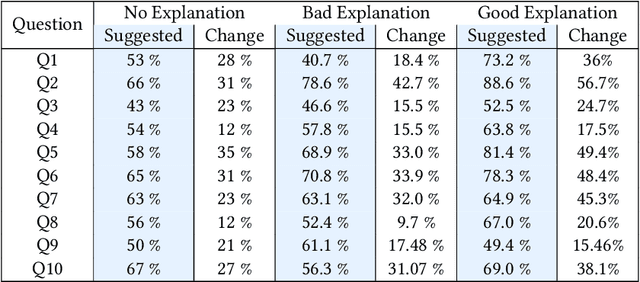
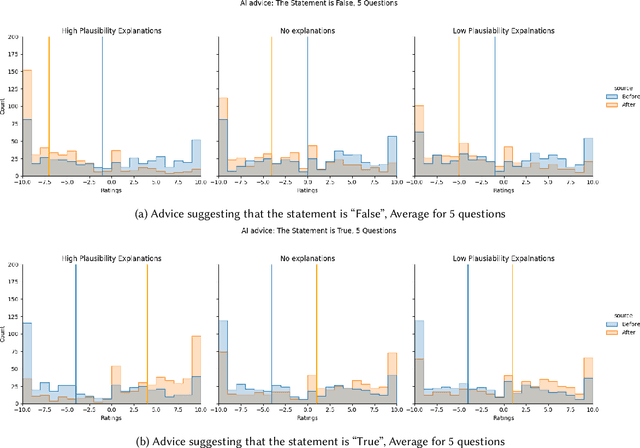

Abstract:Previous research on expert advice-taking shows that humans exhibit two contradictory behaviors: on the one hand, people tend to overvalue their own opinions undervaluing the expert opinion, and on the other, people often defer to other people's advice even if the advice itself is rather obviously wrong. In our study, we conduct an exploratory evaluation of users' AI-advice accepting behavior when evaluating the truthfulness of a health-related statement in different "advice quality" settings. We find that even feedback that is confined to just stating that "the AI thinks that the statement is false/true" results in more than half of people moving their statement veracity assessment towards the AI suggestion. The different types of advice given influence the acceptance rates, but the sheer effect of getting a suggestion is often bigger than the suggestion-type effect.
Neural Network-based exploration of construct validity for Russian version of the 10-item Big Five Inventory
Jun 04, 2018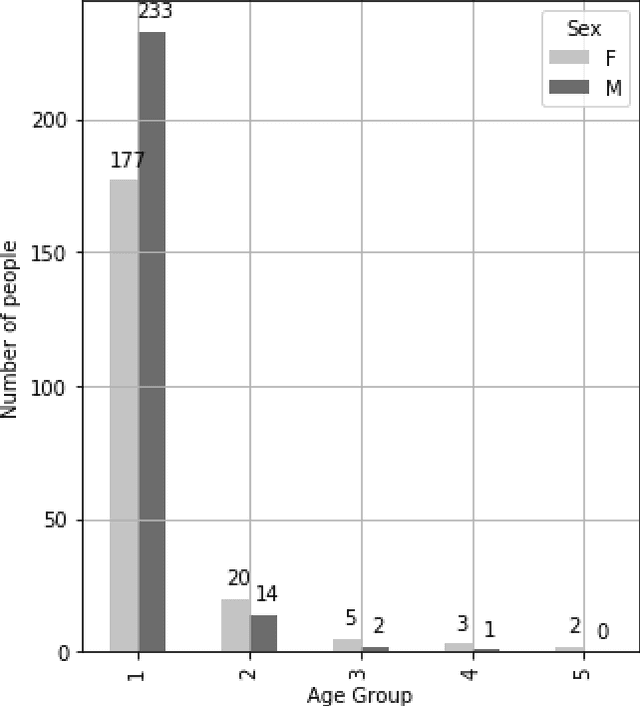
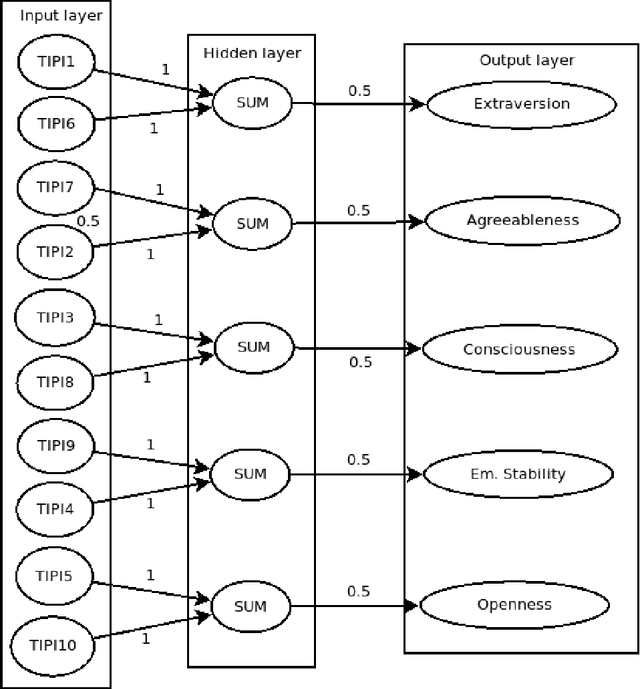
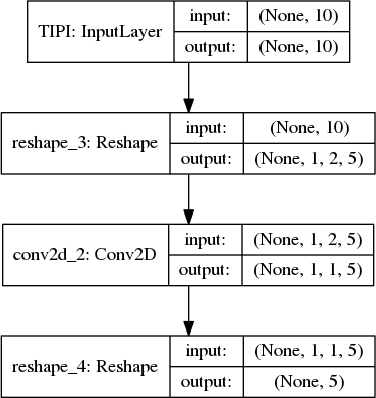
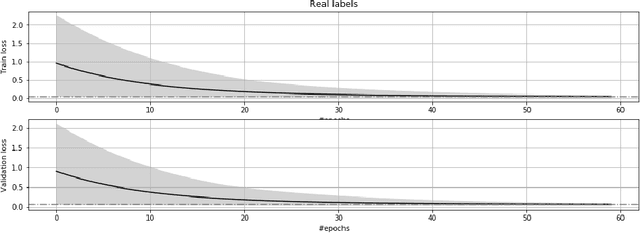
Abstract:This study aims to present a new method of exploring construct validity of questionnaires based on neural network. Using this test we further explore convergent validity for Russian adaptation of TIPI (Ten-Item Personality Inventory by Gosling, Rentfrow, and Swann). Due to small number of questions TIPI-RU can be used as an express-method for surveying large number of people, especially in the Internet-studies. It can be also used with other translations of the same questionnaire in the intercultural studies. The neural network test for construct validity can be used as more convenient substitute for path model.
 Add to Chrome
Add to Chrome Add to Firefox
Add to Firefox Add to Edge
Add to Edge